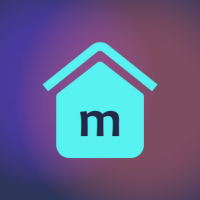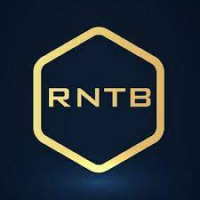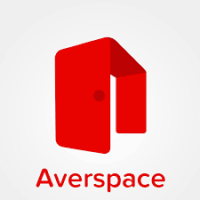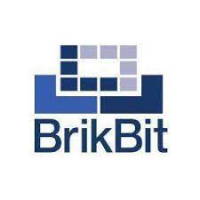One should always keep an eye out when buying and selling real estate. Real estate transactions can become a nightmare rather than a pleasurable experience due to risks associated with buying and selling real estate, including fraud, human errors in paperwork, sluggish processing times, bureaucracy, and opaque transactions.
Blockchain in real estate startup owners are considering using blockchain technology to address real estate problems. We chose nine blockchain real estate companies building platforms in the real estate industry. We ranked them based on the following factors: availability of a live product/beta/MVP, money raised, stage of the roadmap, and scalability. This will allow us to demonstrate the most prevalent use cases of blockchain in the real estate industry.
Best Blockchain Real Estate Companies
Blockchain companies in real estate are the leading technology since it has a built-in trust system. Global real estate firms use blockchain’s ledger and smart contract features to transparently and effectively make renting, purchasing, investing, and even financing possible.
A unified database of leases and acquisitions is more important than ever because of the enormous daily rate of real estate crypto tokens. Blockchain in real estate companies can do that. Brokers and agents would be able to access the whole transaction history of a property if the traditional Multiple Listing Service database was upgraded to a blockchain-based one.
Evaluation Criteria
Several criteria should be considered when evaluating blockchain real estate companies that are using blockchain to make an informed decision. Here are some evaluation criteria to help you choose the right blockchain real estate company:
- Experience and Track Record: Evaluate the company’s experience in the real estate industry and its track record in implementing blockchain solutions. Look for successful case studies or partnerships with reputable real estate organizations.
- Technology and Infrastructure: Assess the company’s blockchain technology infrastructure, including its platform’s scalability, security, and efficiency. Consider the compatibility of their blockchain solutions with existing real estate systems and networks.
- Smart Contract Capabilities: Evaluate the company’s smart contract functionality and features. Look for advanced capabilities such as automated property transfers, rental agreements, and escrow services.
- Data Privacy and Security: Examine the company’s approach to data privacy and security. Ensure they have robust measures to protect sensitive real estate data and comply with relevant regulations.
- Interoperability and Integration: Assess the company’s ability to integrate with other systems and platforms within the real estate ecosystem. Look for compatibility with industry standards and protocols to facilitate seamless data exchange.
- Regulatory Compliance: Verify that the company adheres to legal and regulatory requirements in the jurisdictions they operate. Consider their understanding of real estate regulations and how they ensure compliance with their blockchain solutions.
- User Experience and Adoption: Evaluate the user experience of their blockchain platform and the ease of adoption for both real estate professionals and end-users. Consider the availability of user-friendly interfaces, documentation, and support services.
- Industry Reputation and Partnerships: Research the company’s reputation within the blockchain and real estate communities. Look for partnerships with established real estate organizations, industry alliances, or collaborations with other reputable companies.
- Cost and Value Proposition: Assess the company’s pricing structure and evaluate its value in terms of cost savings, efficiency gains, or improved transparency. Consider the return on investment and the long-term benefits of implementing their blockchain solutions.
- Customer Reviews and References: Seek feedback from existing clients or users of the company’s blockchain solutions. Look for customer reviews, testimonials, or references to gain insights into their level of satisfaction and the company’s performance.
The expanding property-sharing business embraces blockchain and assists the traditional real estate industry. The 15 blockchain real estate tokenization companies that are using blockchain listed below leverage the booming technology to expand their clientele.

Here are the Top 9 Blockchain Real Estate Companies to Watch in 2025.
The expanding property-sharing business embraces blockchain and assists the traditional real estate industry. The 9 blockchain real estate tokenization companies listed below leverage the booming technology to expand their clientele.

1. SoluLab
SoluLab offers a white-label real estate tokenization platform, seamlessly integrating with any real estate website. With a user-friendly Web application, buyers and agents can submit offers instantly from online listings. The platform, utilizing multiple blockchain technologies and smart contracts, ensures transparent transactions with real-time notifications and chat features.
Trusted by industry leaders like Waterton, The Corcoran Group, Freeman Webb, Global Switch, and recognized as a top Blockchain development company by Goodfirms, Clutch, and Gartner, SoluLab stands at the forefront of real estate blockchain companies. Founded by industry experts, including a former VP of Goldman Sachs, SoluLab's excellence is underscored by its 33rd rank on Deloitte’s 2020 Technology Fast 500™ list, marking it as a leading player in real estate blockchain projects.

2. Propy
Propy, a pioneer in the real estate crypto projects sphere, boasts a decentralized title registry and operates as a global real estate marketplace. Having successfully raised $15 million in its PRO Token Sale in September 2017, Propy embarked on a mission to revolutionize the global real estate industry through blockchain technology. Collaborating with the Ukrainian government and a Chinese real estate services provider, Propy facilitated foreign investors' access to blockchain real estate, marking a significant leap in the industry.
Currently active in prominent cities like San Francisco, Dubai, Beijing, New York, Moscow, Los Angeles, Miami, and London, Propy enables users to search for properties in their local language. With detailed property information and owner contact options available, Propy facilitates seamless transactions, allowing customers to use bitcoins for real estate purchases on the blockchain.
$25-$49
101-250
2016
California, United States
N/A

3. Harbor
This blockchain real estate venture is dedicated to transforming traditionally illiquid assets like real estate and private equity into tokenized securities compliant with Securities and Exchange Commission (SEC) regulations. Harbor prioritizes compliance checks such as AML (Anti-Money Laundering) and KYC (Know Your Customer) to ensure adherence to regulatory standards when engaging with investors. Leveraging Regulated Tokens (R-Tokens), the network digitizes tangible real estate assets, with a strategic restriction that prevents non-accredited investors from purchasing R-Tokens from their accredited counterparts.
Harbor's innovative strategy extends to its use of Ethereum's ERC20 technical framework for R-Tokens, making them theoretically tradeable on any cryptocurrency market that accepts such tokens. The startup aims to collaborate with a client this summer to develop its inaugural securities token, demonstrating its commitment to advancing the capabilities of blockchain technology in the real estate sector.
$55-$90
1-10
2017
California, United States
N/A

4. Mogul
Alex and Joey, the Mogul founders, spent years understanding the intricate real estate investment industry. It became shockingly evident that the system was filled with antiquated procedures after searching the sector, capital stack, and product types. Several prohibitive entrance hurdles were obvious, due to which chaos birthed Mogul.
Mogul is the blockchain oracle for real estate and will continue to disrupt a sector ripe for revolution by liberalizing real estate investing. The mogul's objective is to provide all investors direct access to real estate for $1 and property owners with cost-cutting, equity-unlocking blockchain-based solutions. Polygon, a “layer two” scalability solution for Ethereum, helps them achieve that. Polygon offers the same security and functionality as Ethereum, but transactions are faster and cheaper.
$25-$50
1-10
2022
Washington, United States
N/A

5. BitRent
BitRent is the first blockchain-based real estate platform that brings together investors worldwide and property developers to raise capital during the early phases of development. Small investments can be made and protected by being registered in the decentralized registry. Along with having its coin, the RNTB token, BitRent, also permits real estate transactions through smart contracts.
$55-$90
11-50
2001
England, United Kingdom
Blizzard, J2 Global

6. Blocksquare
Real estate firms can utilize Blocksquare's platform to design and offer tokenized investment packages directly on their websites, enabling the sale of real estate assets to a maximum of 100 customers. Blocksquare's blockchain-based protocol, integrated with data from land registry systems, links crucial real estate items to PropToken smart contracts. These smart contracts not only specify the rules and regulations of each asset but also securely manage ownership. Customers of Blocksquare can conveniently exchange ETH for PropTokens and utilize the decentralized exchange to buy or sell their tokens at any time.
$55-$90
11-50
2017
Ljubljana, Slovenia
N/A

7. Averspace
Averspace is the first C2C (consumer-to-consumer) one of Singapore's leading blockchain in real estate companies. It is a platform that directly connects landlords and property owners with purchasers or tenants for transactions involving purchasing, selling, or renting real estate without brokers.
The platform also offers a user-friendly smartphone app. The creators of Averspace also work on Real Estate Doc, a cloud-based enterprise project that provides real estate firms with document management, digital signing, payments, and analytics capabilities.
$55-$99
11-50
2016
Singapore
N/A

8. ATLANT
ATLANT, an international blockchain network for real estate, offers tokenization of properties, where the owner provides property information, verifies its condition and debt-free status, and then ATLANT tokenizes the real estate asset, establishing a direct link between the number of tokens and the asset's value. These tokens are listed on ATLANT's trading platform, allowing investors worldwide to purchase them and acquire partial ownership of the asset until it is fully funded, with the owner receiving the payment in the chosen cryptocurrency.
$25-$50
11-50
2017
England, United Kingdom
N/A

9. BrikBit
BrikBit, a blockchain-based ecosystem, enables and oversees various activities in the real estate sector, offering benefits to all stakeholders. It utilizes unique blockchains for each real estate object based on the applicable laws and features in a given nation, covering use cases such as providing investment opportunities for construction workers, facilitating home purchases through mortgages with incremental payments, and enabling crowdfunding for property renovation expenses. Although currently in the real estate ICO stage, BrikBit aims to deliver these functionalities.
$25-$50
11-59
2018
Ticino, Switzerland
N/A
How Is Blockchain Technology Changing Real Estate?
More blockchain use in commercial real estate could have a favorable impact on the sector. Real estate companies use blockchain because it is a relatively young technology. But it can gain popularity when people become aware of its potential advantages. The following are possible blockchain uses in commercial real estate.
- Faster, More Secure Transactions: Numerous characteristics of blockchain can result in speedier, more secure transactions. You don’t need to wait for financial institutions to file paperwork because every activity is recorded on a public ledger. Additionally, using blockchain in commercial real estate would make it impossible for records to be altered. Consumers currently depend on financial organizations to safeguard their private information. Unfortunately, the extra security measures that banks & other financial organizations take don’t guarantee safety. Financial institutions are the target of some of the largest data breaches, probably because fraudsters know they may obtain information there that would aid them in their crimes.
- Smart Contracts: By minimizing paperwork and the stages required to purchase property, using blockchains in commercial real estate to expedite processes instantly creates chances to cut expenses. Smart contracts built on the blockchain are utilized to help automate it. If/then statements that advance real estate blockchain projects at the appropriate point can be used in blocks of a ledger. For instance, the smart contract might stipulate that the buyer won’t get a formal price offer until the property has been thoroughly inspected and assessed by an expert. Once the buyer has chosen a request, it is sent to the seller and their real estate agent for approval. Blockchain-based smart contracts ensure that all parties keep their promises before the transaction is closed when correctly implemented.
- Lower Costs: By minimizing paperwork and the stages required to purchase property, using blockchains in commercial real estate to expedite processes instantly creates chances to cut expenses. You can buy property tokens on some websites for real estate. You can buy a house or a portion of a property using cryptocurrencies rather than going through a brokerage that levies fees. Using blockchain to buy the property directly rather than going via go-betweens, you can eliminate all the costs and percentages experts demand when selling or buying property.
- Asset Tokenization: Blockchain technology has the potential to revolutionize how real estate investments are crowdfunded. Currently, ownership of properties funded by crowdfunding is distributed among investors. A real estate company, for instance, might offer 100 shares. Once fully funded, they use the investor’s funds to buy or construct an asset that will produce income.
- Tracking Asset Ownership: Asset tokenization would slightly change the structure to provide investors & developers more flexibility. You could buy a token recorded in a public ledger rather than a portion of the real estate. You now have a fully transparent record of when and how much you spent on the token. You have evidence that you invested, and the tokens are yours in case your ownership is questioned.
- Selling Your Real Estate Investment Tokens: Asset tokenization will also make it simpler for you to sell your investment to a third party. Investment agreements allow other owners to restrict you from selling your stake without their consent. Even if you can sell your share without permission, you must complete the paperwork to transfer your ownership to another investor.

Final Thoughts
Here is our final opinion on the decision to use digital research to study the housing market in 2023. If you’ve been considering engaging in this digital real estate transaction, you must first comprehend what blockchains are and how they operate. All the data relating to real estate transactions are intended to be stored in these databases. This industry is booming, and the number of blockchain in real estate companies using the blockchain to transact in real estate is also growing. The list will continue to grow, but we’ve included the top nine that offer specific services to issuers and real estate investors. It is important to keep in mind that blockchain real estate is safe. There is no chance that someone will delete or alter your information because it is saved permanently.
If you are interested in purchasing an investment property and, at the same time, using blockchain networks, you should consider using Solulab’s white-label real estate tokenization platform. SoluLab is a trusted blockchain development company that offers white-label real estate tokenization services. Their platform enables businesses to tokenize real estate assets, providing fractional ownership and investment opportunities. With SoluLab’s expertise in blockchain technology, they create secure and efficient solutions for the real estate industry, enhancing transparency and liquidity in the market. Their services extend beyond real estate tokenization, offering comprehensive blockchain development solutions tailored to business needs.
FAQs
1. How does real estate tokenization benefit investors?
Real estate tokenization offers several benefits to investors, including increased liquidity, fractional ownership, and access to a wider range of investment opportunities. By tokenizing real estate assets, investors can easily buy and sell tokens, eliminating the need for traditional lengthy processes associated with property transactions.
2. Is real estate tokenization secure?
Yes, real estate tokenization leverages blockchain technology, providing a high-security level. Blockchain ensures that all transactions and ownership records are stored in an immutable and decentralized ledger, making it difficult for fraudulent activities to occur. Additionally, smart contracts govern the tokenized assets, ensuring transparency and eliminating the need for intermediaries.
3. Can I invest in real estate with a small budget?
Yes, real estate tokenization allows for fractional ownership, meaning you can invest in a fraction of a property rather than purchasing an entire property. This opens up investment opportunities to individuals with smaller budgets, providing access to the real estate market that was previously limited to high-net-worth individuals.
4. How does tokenization impact property liquidity?
Tokenization enhances the liquidity of real estate assets by enabling fractional ownership and facilitating the trading of tokens on blockchain-based platforms. Investors can easily buy or sell their tokens, allowing for greater flexibility and quicker access to funds than traditional real estate investments.
5. Are there any regulatory considerations for real estate tokenization?
Yes, regulatory compliance is a crucial aspect of real estate tokenization. Each jurisdiction may have different regulations governing securities and digital assets. Working with experienced professionals who understand the legal requirements and can ensure compliance with applicable laws and regulations is important.
6. What is the role of smart contracts in real estate tokenization?
Smart contracts are self-executing contracts with the terms of the agreement directly written into code. In real estate tokenization, smart contracts automate various processes, such as token issuance, ownership transfers, and distribution of returns. They provide transparency, efficiency, and enforceability of the contractual obligations between parties involved in tokenized real estate transactions.
7. Can I tokenize any type of real estate asset?
Any type of real estate asset can be tokenized. Whether residential properties, commercial buildings, or even land, tokenization can be applied to create digital representations of these assets. However, practical considerations such as legal and regulatory requirements, market demand, and asset characteristics must be evaluated before deciding to tokenize a specific property.




